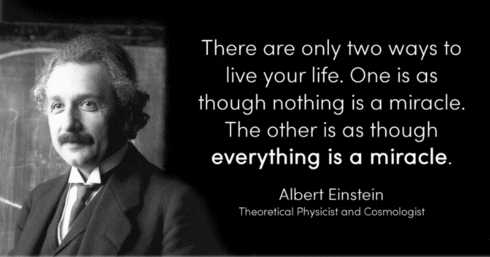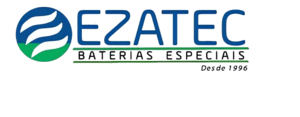No Blog Eletrônica de Potência você encontrará informações sobre teses,artigos,seminarios,congressos,tecnologias,cursos,sobre eletrônica potência. “TEMOS O DESTINO QUE MERECEMOS. O NOSSO DESTINO ESTA DE ACORDO COM OS NOSSOS MERITOS” ALBERT EINSTEIN. Imagination is more important than knowledge, for knowledge is limited while imagination embraces the entire world. EL FUTURO SE CONSTRUYE HOY,EL SUCESSO NO ES FRUTO DE LA CASUALIDAD,SE HUMILDE ,APRENDE SIEMPRE CADA DIA.
AUTOR DO BLOG ENG.ARMANDO CAVERO MIRANDA SÃO PAULO BRASIL

.gif)
“GRAÇAS A DEUS PELA VIDA,PELA MINHA FAMÍLIA,PELO TRABALHO.PELO PÃO DE CADA DIA,POR NOS PROTEGER DO MAL”
“SE SEUS PROJETOS FOREM PARA UM ANO,SEMEIE O GRÂO.SE FOREM PARA DEZ ANOS,PLANTE UMA ÁRVORE.SE FOREM PARA CEM ANOS,EDUQUE O POVO”


https://picasion.com/


sábado, 25 de janeiro de 2014
quarta-feira, 22 de janeiro de 2014
Los transformadores de potencia Autores: Lizunov SD, AK Lohani
El libro describe los principales aspectos prácticos de los transformadores modernos de alta tensión. Los autores han preparado y organizado los libros de consulta de materiales basado en su amplia experiencia y numerosas publicaciones en revistas nacionales y extranjeras. El libro está dirigido a los especialistas en el campo de los equipos de energía eléctrica, la ingeniería y personal técnico de las fábricas de transformación, personal de sistemas de energía asociados con la operación de los transformadores y también se pueden utilizar como un manual para los estudiantes de instituciones de educación superior del poder.
Título: Los transformadores de potencia (Referencia de libros)
Autores: Lizunov SD, AK Lohanin etcétera Editorial: Energoizdat
Año de publicación: 2004
Páginas: 616 Formato: DjVu Tamaño: 29.15 MB ISBN: 5-98073-004-4
Calidad: Excelente
Lenguaje: Ruso
ORIGINAL LINK
http://www.radiofiles.ru/news/silovye_transformatory_spravochnaja_kniga/2010-07-09-664
LINK
http://turbobit.net/ypdgitm2gn8p.html
Switch-Mode Power Supplies: SPICE Simulations and Practical Designs Christopher Basso
Switch-Mode Power Supplies: SPICE Simulations and Practical Designs was released in 2008. Another book on power electronics you say? Not really. In the technical literature, you either have books that are purely academicals and offer in-depth analysis of converters, unfortunately without the essential links to the market reality. You also have purely practical books that pull equations out of thin air without any theoretical grounds. This book bridges both approaches and will hopefully please the power electronics student and the design engineer, both looking for analytical explanations but also for practical solutions when facing customer demands. This book is really about power supplies designs, with SPICE as a design companion. It covers dc-dc but also ac-dc converters. By the way, the ac-dc conversion in offline converters is made by the diodes bridge and the capacitor, the downstream converter is always a dc-dc, isn't it? Press release for the book announcement in French, English, German, Mandarin and Japanese!!
ORIGINAL LINK
http://cbasso.pagesperso-orange.fr/Spice.htm
Christophe Basso Christophe Basso - Engineering Director at ON Semiconductor (France)
Featured Engineer
Christophe Basso
Christophe Basso - Engineering Director at ON Semiconductor (France)
How did you get into electronics/ engineering and when did you start?
I started electronics when I was around 14. At that time, there was a plethora of hobbyist magazines describing how to build light-show stuff (so-called psychedelic modulators), power amplifiers, radio emitters etc. Friends were also bringing me things to repair and that’s how I started to learn electronics. I was also collecting antic radios from which I remember the glowing magic eye tube UM34. Trying to fix them was a funny exercise and I was tripping the breaker several times a week as these radios were poorly isolated. My first soldering iron was an Engel-Loeter, a quick heating type, having a pistol shape. I still have it but could no longer use it to solder SMD types! I bought my single-trace oscilloscope at 15, it was a Hameg HM307 that is still working.What are your favorite hardware tools that you use?
The are several instruments that I use. The first one is an isolated high-voltage dc supply from Xantrex, a XHR600-1.7. This is really a simple and efficient tool if you are in the offline power conversion business. To test my converters, I team this power source with an electronic load from Agilent, an HP6063B. Unlike other instruments that we have, you don’t need to open the manual every time you need them. I also run a LeCroy Waverunner oscilloscope but I confess that I sometimes miss CRT-based devices for their speed and ease of use .What are your favorite software tools that you use?
I extensively use simulation tools such as Intusoft ICAPS but also mathematical tools such as Mathcad. Mathcad may not be the best of the available solvers, but it is easy to use and well spread among the engineers world-wide. At ON Semiconductor, where I work in France, we write a lot of design sheets with this software.
FULL INTERVIEW
http://www.eeweb.com/spotlight/christophe-basso
Assinar:
Comentários (Atom)
